
Ameyoko
Abi BarberAmeyoko is a bustling market street with stalls selling everything you could possibly want, and more.

Ameya-Yokocho is an extremely busy street market that runs along the railway line between JR Ueno Station and Okachimachi Station. There are many small retail stores on this street selling seafood, fruits and vegetables, general supplies, as well as shops for discount clothing, accessories, cosmetics, watches and confectionery, as well as a large number of stalls selling street food snacks, as well as inexpensive restaurants, cafes and bars.
Originally, the area that is now called Ameya-Yokocho was an inner-city residential area with many wooden houses crowded together. However, during the previous war, the entire area was burned to the ground in a bombing raid. Reconstruction began immediately after the war and a number of shops and street stalls sprang up in the area.

Ameyoko is a bustling market street with stalls selling everything you could possibly want, and more.
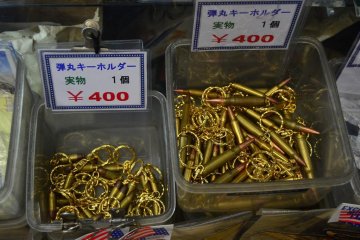
The former black market, opened after World War II has become an interesting, complete, unique, and cheap market to visit in Tokyo.
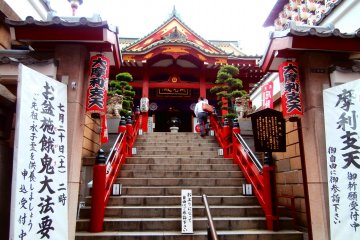
Once you notice a little temple right in the middle of a busy shopping street, you won't be able to help walking in.

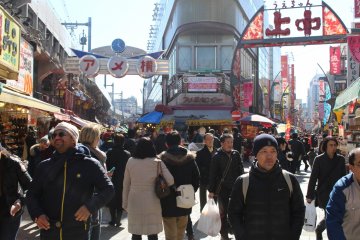
Ameyoko is famous for food with a great variety of street food and restaurants to choose from. Here are a few well-known recommendations for the next time you visit.
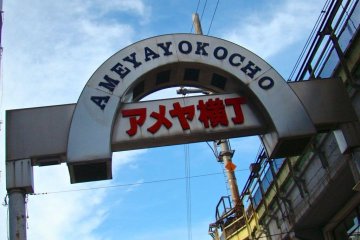
Ameyayokocho or Ameyoko is an energetic open air market filled with food stalls, restaurants, traditional wares and bargain prices on clothes, shoes and gifts.

NOHGA HOTEL AKIHABARA TOKYO is conveniently located in the midst of the electric town Akihabara, also known as the capital of manga and anime. In addition, this neighborhood has an abundance of tech shops, maid cafes and a variety of restaurants. With just a 6-minute walk away from Akihabara station, it provides easy access to explore other areas nearby such as Ueno and Asakusa. This hotel embodies the rich cultures of music, art and food. Nohga’s concept of music is derived from Akihabara’s local history, starting as a district of radio and wireless component merchants in the late 1920s. The artistic and luxurious space throughout the hotel is achieved by featuring art and amenities designed in collaboration with craftsmen from around Japan. As for the food menu, it’s seasonal fresh ingredients are sourced domestically. The glasses and dinnerware served are collaborations with stores in the surrounding area. All 120 non-smoking guest rooms feature an ensuite bathroom with a rain shower, in-room safety box, mini fridge, USB plugs, free Wi-Fi, a high-quality bluetooth speaker and flatscreen TV with original music and film. The lounge area and a compact 24-hour gym can be found near the reception on the second floor. Services include laundry (from 2,750JPY) and a 24-hour front desk with a check-in time of 3PM and check-out time of 11AM. For sightseeing you can rent a Tokyobike for the day (2,000 JPY/day) to explore the vicinity.
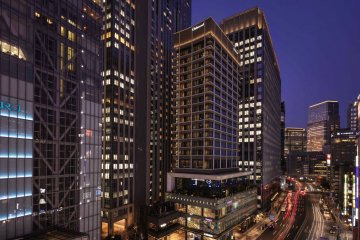
Oakwood Premier Tokyo comes from a brand of standout luxury hotel & service apartments right at the heart of the Tokyo metropolis. It is located in the business hub of Marunouchi with JR Tokyo Station in close proximity. This will allow guests and travelers to easily access the city's extensive transport network and visit various landmarks such as Imperial Palace, Tsukiji Fish Market, Ginza and Shopping District. Boasting 123 luxurious apartments on the upper floors of a multi-serviced complex, each room offers a magnificent view of the city, not to mention all furnished and a fully-equipped kitchen set which is rarely seen in your everyday service apartment. Without doubt, these spacious tranquil retreats are curated to give you the amenities and services of a luxury hotel and a feeling of home. They are good options for both business executives and leisure travelers from one night of a short-stay to a few weeks/months of mid-to-long-term stay.
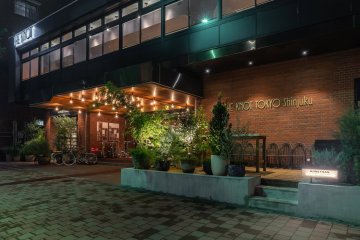
Located right next to Shinjuku Chuo Park, THE KNOT TOKYO Shinjuku is a modern hotel with an exceptional design and easy access to the nearby Shinjuku train station and the Meiji Shrine. The 14-story hotel building was renovated and reopened in August 2018 as THE KNOT TOKYO Shinjuku . The western-style rooms offer a park view on the top floor as well as a newly opened terrace suite. The spacious atrium design offers a relaxed atmosphere and connects the restaurant, bar, lounge and lobby with one another. One of the highlights of THE KNOT is the delicious dishes. There are six areas in which food and drinks are offered. From the grill area to high-quality black tea and fresh bread, everything is on offer.

Bunny Cafe Moff Rell in Tokyo's Chiyoda Ward offers a chance to interact with adorable rabbits. You can make reservations for the cafe by phone, or you can visit and pay at the store before entering. The cafe provides 30- and 60-minute courses, and you can play with or feed the bunnies. If you are unsure about how to treat the rabbits, don't worry! The staff members will kindly explain everything to you. Minimum age is 10 years old.

PIZZERIA & BAR NOHGA is an all day dining restaurant interpreting a fusion of “Spanish Italian” cuisine and has a kitchen to table design. There is a casual bar area and restaurant where you can take a peek inside the open kitchen whilst enjoying your meal. Visit the cafe for a range of coffees and teas along with an offering of tapas snacks and seasonal desserts. The cafe also offers an assorted dessert and all-you-can-drink cafe set. Breakfast takes on the art of sharing, where a range of platters are combined with focaccia and your choice of eggs cooked your way. Coming for lunch? Choose from a selection of pizzas, pastas and salads. Each lunch menu is accompanied with homemade soup, iced tea and focaccia. Dinner time offers a range of exquisite tapas and pizzas that can also be shared. Breakfast: 07:00 - 10:00, Lunch 11:30 - 14:30, Cafe 14:30 - 18:00, Dinner: 18:00 - 23:00 with last order at 10pm.
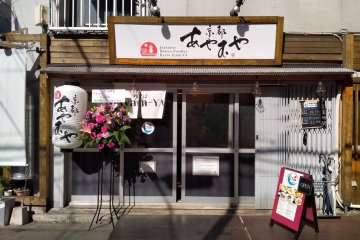
Ayam-YA is a certified halal ramen restaurant found in the Okachimachi area of Tokyo, between Asakusa and Ueno, and not far from Assalaam Mosque. A sister branch in Kyoto also exists.
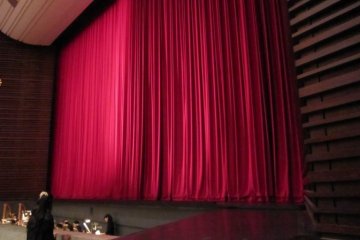
Tokyo Bunka Kaikan is a renowned concert hall located in Ueno Park, the green heart of Taito Ward. The hall opened in 1961 as a hub for arts and culture and has since played host to numerous operas, ballets, and classical concerts by both Japanese and international artists. The building itself is a feat of modern architecture and was designed by architect, Kunio Maekawa. The main hall, which features opera, ballet, and orchestral performances, is an impressive five stories high and contains 2,303 seats. Its modern interior is visually stunning, and its acoustics are world-renowned. The smaller recital hall, located on the second floor, has 649 seats and hosts almost daily chamber music concerts and recitals. In addition to its performance halls, Tokyo Bunka Kaikan is also home to an extensive music library, meeting rooms, rehearsal rooms, a restaurant, a cafe, a gift shop, and a Japanese goods and accessories store. In theme with its mission to promote the arts, the facility holds multiple workshops, competitions, and professional development programs to encourage and facilitate artistic learning.
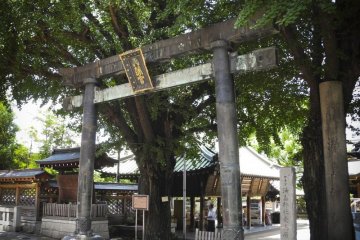
Yushima Tenmangu, also known as Yushima Tenjin, is a Shinto shrine dedicated to Tenjin, the god of learning. It is conveniently located in Bunkyo City, positioned near Ueno Park and the University of Tokyo, which makes it a popular spot for students to pray for good grades and inscribe ema (wooden plaques) with their academic goals. The shrine is also abundant with seasonal flowers and plays host to lively events throughout the year, including the Plum Blossom Festival, Tenjin Festival, and Chrysanthemum Festival. The shrine was initially founded in 458 as a place of worship for Ame-no-Tajikarao, the god of physical strength. Later, in 1355 the building expanded and became one of the many shrines dedicated to Tenjin, the deified spirit of famous scholar and politician Sugawara-no-Michizane. The grounds feature beautiful shrine buildings designed in the traditional Shinto architectural style, some which are decorated with colorful carvings of Japanese legends. The Main Hall (or Honden) exemplifies this artistry. Other notable structures are Yushima Tenjin Treasury, a small museum that holds a number of cultural artifacts and paintings, and Omotesando, the copper torii gate at the shrine’s entrance. The torii was designated as a Tangible Cultural Property by Tokyo.

The National Museum of Western Art is the premier public art gallery in Japan specializing in art from the Western tradition. The museum is in the museum and zoo complex in Ueno Park in Taito, central Tokyo. It received 1,162,345 visitors in 2016. Wikipedia